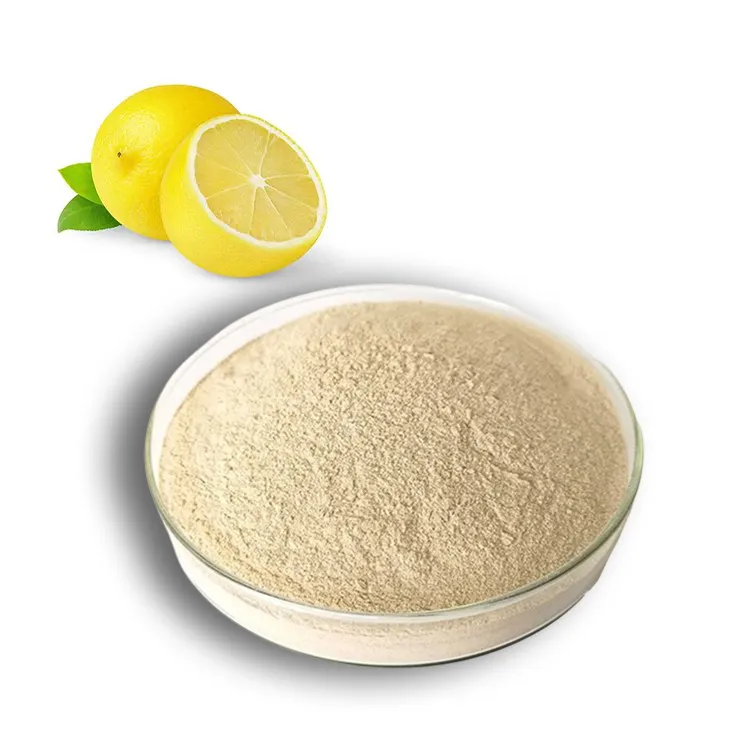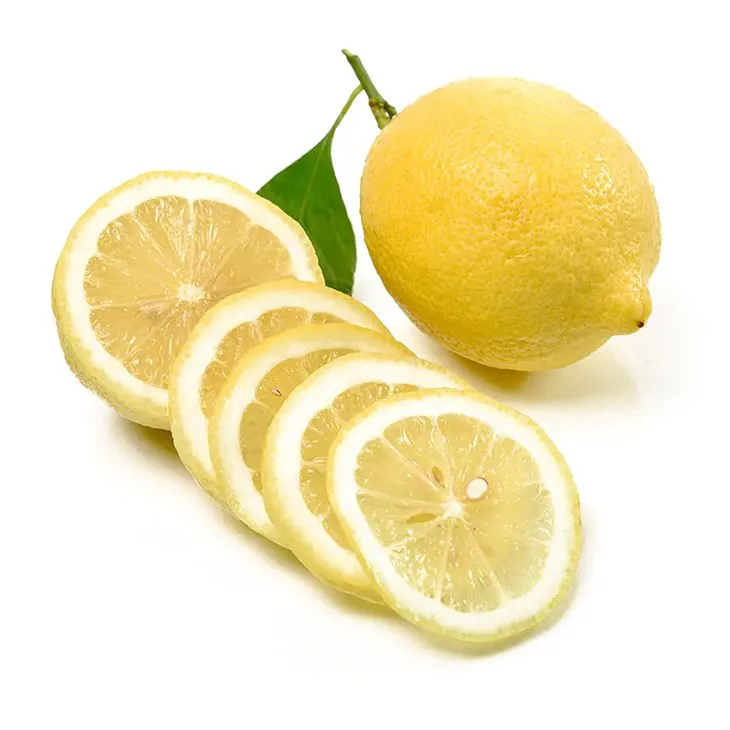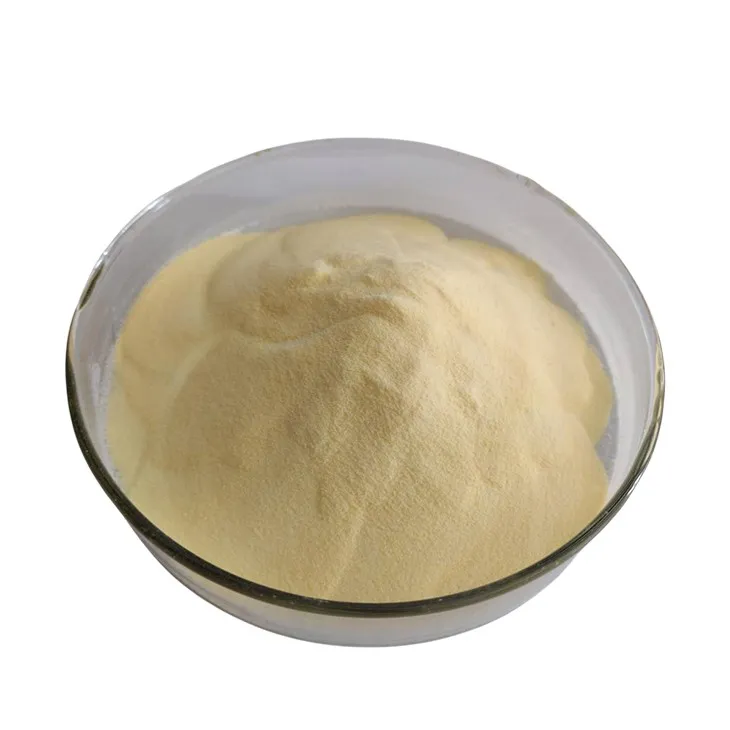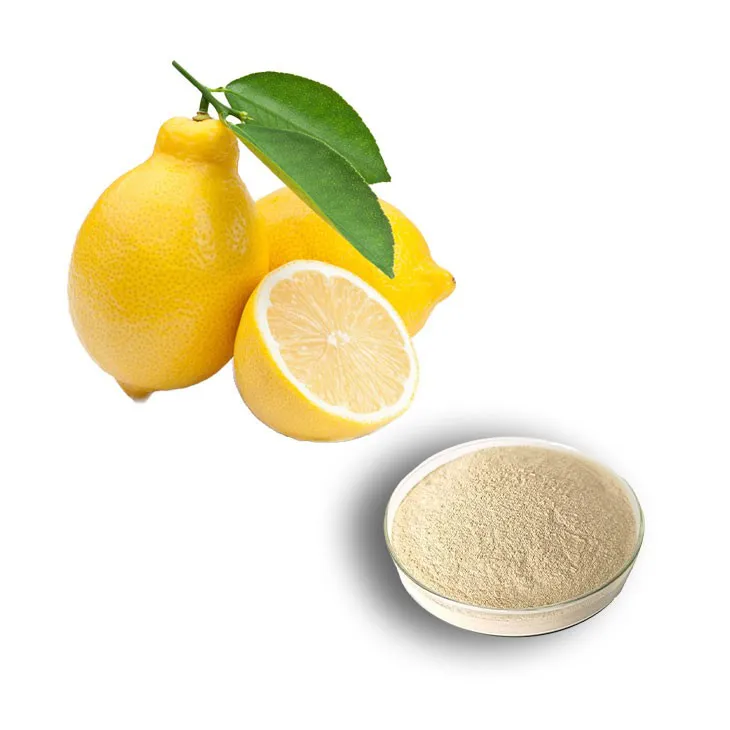- 0086-571-85302990
- sales@greenskybio.com
How to make powder with lemon extract.
2024-11-30

Introduction
Lemon Extract is a concentrated form of the essence of lemons, rich in flavor, aroma, and various beneficial compounds. Transforming Lemon Extract into a powder form can offer several advantages, such as enhanced shelf - life, easier storage, and more convenient use in a variety of applications. This article will explore the process of making powder from Lemon Extract, including the techniques involved, the benefits of doing so, and some useful tips for high - quality production.

Materials Needed
Before starting the process of making lemon extract powder, it is essential to gather the necessary materials:
- Lemon extract: Ensure that you have a high - quality lemon extract. It can be either homemade or commercially purchased. Homemade lemon extract is often made by steeping lemon peels in alcohol for an extended period.
- Carrier agent: A carrier agent is required to help in the formation of the powder. Common carrier agents include maltodextrin, tapioca starch, or gum arabic. These substances are food - grade and help in absorbing the moisture from the lemon extract and creating a dry, powder - like consistency.
- Equipment: You will need basic kitchen equipment such as a mixing bowl, a spatula, a measuring spoon, and a drying device. For drying, you can use an oven set to a low temperature, a food dehydrator, or a microwave (although the microwave method requires more caution).

The Process of Making Lemon Extract Powder
1. Measuring and Mixing
- Determine the ratio of lemon extract to the carrier agent. A general ratio could be 1:2 or 1:3 (lemon extract : carrier agent), but this can be adjusted based on the desired concentration of lemon flavor in the final powder. For example, if you want a more intense lemon flavor, you can use a ratio closer to 1:2.
- Measure out the appropriate amounts of lemon extract and the carrier agent. For instance, if you are using 1 tablespoon of lemon extract, you might use 2 - 3 tablespoons of maltodextrin as the carrier agent.
- Pour the lemon extract and the carrier agent into a mixing bowl. Use a spatula to thoroughly mix the two ingredients together. Ensure that there are no lumps and that the lemon extract is evenly distributed throughout the carrier agent. This mixing step is crucial as it allows the carrier agent to start absorbing the moisture from the extract.
2. Drying
- Oven Drying:
- Pre - heat your oven to the lowest possible temperature, usually around 100 - 150°F (38 - 66°C). Higher temperatures may cause the lemon extract to lose its flavor or the carrier agent to caramelize.
- Transfer the mixed lemon extract and carrier agent onto a baking sheet lined with parchment paper. Spread the mixture evenly in a thin layer. A thin layer ensures that the drying process is more efficient as more surface area is exposed to the heat.
- Place the baking sheet in the pre - heated oven. Leave the oven door slightly ajar to allow moisture to escape. Check on the progress every 15 - 20 minutes. The drying time can vary depending on the amount of mixture, the humidity in the air, and the efficiency of your oven. It may take anywhere from 1 - 3 hours or more until the mixture is completely dry and crumbly.
- Food Dehydrator:
- Set up your food dehydrator according to the manufacturer's instructions. Most dehydrators have adjustable temperature settings.
- Place the mixed lemon extract and carrier agent on the dehydrator trays. Again, spread it out evenly in a thin layer.
- Turn on the dehydrator and set the temperature to a low setting, typically around 95 - 115°F (35 - 46°C). The drying process in a dehydrator may take several hours, depending on the factors mentioned above. Monitor the progress regularly to ensure that the mixture dries evenly.
- Microwave Drying:
- This method is faster but requires more careful monitoring. Place the mixed lemon extract and carrier agent in a microwave - safe dish.
- Set the microwave to a low - power setting. Microwave in short intervals of 30 seconds to 1 minute. After each interval, stir the mixture to check for dryness and to prevent hot spots. Repeat the microwaving and stirring process until the mixture is dry. This method may take around 5 - 10 minutes in total, but it can vary depending on the power of your microwave.
3. Grinding and Packaging
- Once the dried mixture has cooled completely, it is time to grind it into a fine powder. You can use a mortar and pestle for a small - scale production, or a coffee grinder or a spice grinder for a larger quantity. Grind the dried mixture until it reaches a smooth, powdery consistency. Make sure that there are no large lumps remaining.
- After grinding, transfer the lemon extract powder into an airtight container. Use a funnel if necessary to avoid spillage. Store the container in a cool, dry place away from direct sunlight. The properly stored lemon extract powder can have a shelf - life of several months to a year, depending on the quality of the ingredients and the storage conditions.

Benefits of Making Lemon Extract Powder
1. Extended Shelf - Life
Liquid lemon extract may have a relatively short shelf - life due to factors such as oxidation and microbial growth. By converting it into a powder form, the risk of these deteriorating factors is significantly reduced. The dry powder is less likely to support the growth of bacteria, yeasts, or molds, allowing it to be stored for a longer period without spoilage.
2. Easier Storage and Transportation
- Powdered lemon extract takes up less space compared to its liquid counterpart. This is especially beneficial for those with limited storage space, such as in a small kitchen or a pantry. It can be neatly stored in a small container on a shelf without the risk of leakage.
- When it comes to transportation, powder is more stable and less likely to spill or break compared to a liquid. This makes it ideal for shipping or carrying around, for example, if you are traveling and want to bring along some lemon - flavored powder for use in making drinks or adding flavor to food.
3. Versatile Use in Various Applications
- In the culinary world, lemon extract powder can be used in a wide range of recipes. It can be added to baked goods such as cakes, cookies, and muffins to impart a lemony flavor. It can also be used in dry rubs for meats, in salad dressings, or in powdered drink mixes.
- Beyond the kitchen, lemon extract powder can be used in the cosmetic and aromatherapy industries. It can be added to bath salts, body scrubs, or used in the creation of scented candles for its refreshing and invigorating aroma.

Tips for High - Quality Production
1. Quality of Lemon Extract
- Start with a high - quality lemon extract. If making your own, use fresh, organic lemons for the best flavor. The quality of the lemons will directly impact the flavor of the final powder.
- When purchasing commercial lemon extract, look for products that are pure and do not contain a large amount of artificial additives or preservatives.
2. Accurate Measuring and Mixing
- Use accurate measuring tools to ensure the correct ratio of lemon extract to carrier agent. Even a small deviation in the ratio can affect the final product's texture and flavor.
- Thoroughly mix the two ingredients to ensure a homogeneous mixture. This will help in achieving a consistent powder with an even distribution of lemon flavor.
3. Drying Conditions
- Maintain a consistent drying temperature. Fluctuations in temperature can lead to an uneven drying process, resulting in some parts of the mixture being over - dried while others remain moist.
- Ensure proper air circulation during drying, whether using an oven, a dehydrator, or a microwave. Good air circulation helps in removing moisture more efficiently.
4. Grinding and Packaging
- When grinding the dried mixture, do not over - grind as it can cause the powder to become too fine and potentially clump together. Aim for a smooth, free - flowing powder.
- Use clean, dry, and airtight containers for packaging the powder. This will help in maintaining its freshness and preventing moisture absorption during storage.
Conclusion
Making powder from lemon extract is a rewarding process that offers numerous benefits. By following the proper techniques, using high - quality materials, and adhering to the tips for high - quality production, you can create a lemon extract powder that is not only delicious and versatile but also has a long shelf - life. Whether you are a home cook looking to add a new flavor dimension to your recipes or someone interested in exploring the potential of lemon extract in other applications such as cosmetics or aromatherapy, this powder form can be a great addition to your pantry or toolkit.
FAQ:
Question 1: What are the basic ingredients needed to make powder with lemon extract?
To make powder with lemon extract, you typically need the lemon extract itself. Additionally, you may need a drying agent such as maltodextrin or tapioca starch. These help in absorbing moisture and converting the liquid extract into a powder form. You might also need some equipment like a spray dryer or a dehydrator.
Question 2: What is the role of a drying agent in making lemon extract powder?
The drying agent plays a crucial role. Since lemon extract is a liquid, it is difficult to turn it directly into a powder. A drying agent like maltodextrin or tapioca starch absorbs the liquid content of the extract. It helps in the formation of small particles and binds the components together during the drying process. This results in a more stable and easily manageable powder form.
Question 3: Can the lemon extract powder be made without special equipment?
Yes, it is possible to make lemon extract powder without special equipment to some extent. One method is to mix the lemon extract with a drying agent in a suitable ratio and then spread it out thinly on a baking sheet. Place it in a warm, dry area or in an oven at a very low temperature (around 100 - 120°F or 38 - 49°C) for a long time. However, using a spray dryer or a dehydrator can produce a more uniform and fine - quality powder more efficiently.
Question 4: What are the benefits of lemon extract powder?
Lemon extract powder has several benefits. It has a concentrated lemon flavor, which can be used in cooking, baking, and making beverages. It is also more convenient to store and has a longer shelf life compared to liquid lemon extract. In addition, it can be easily measured and added to various recipes in precise amounts. It may also retain some of the health - promoting properties of lemons, such as being a source of antioxidants.
Question 5: Are there any tips for ensuring high - quality lemon extract powder?
Firstly, ensure that the lemon extract is of high quality to start with. When using a drying agent, mix it thoroughly with the extract to ensure even distribution. Control the drying conditions carefully, whether using an oven or a drying machine. Avoid over - drying, which can cause the powder to lose some of its flavor and beneficial properties. Also, store the powder in an airtight container in a cool, dry place to maintain its quality.
Related literature
- The Science of Extract Powder Production"
- "Lemon - Based Ingredient Processing: A Comprehensive Guide"
- "Advanced Techniques in Fruit Extract Powder Manufacturing"
- ▶ Hesperidin
- ▶ citrus bioflavonoids
- ▶ plant extract
- ▶ lycopene
- ▶ Diosmin
- ▶ Grape seed extract
- ▶ Sea buckthorn Juice Powder
- ▶ Beetroot powder
- ▶ Hops Extract
- ▶ Artichoke Extract
- ▶ Reishi mushroom extract
- ▶ Astaxanthin
- ▶ Green Tea Extract
- ▶ Curcumin Extract
- ▶ Horse Chestnut Extract
- ▶ Other Problems
- ▶ Boswellia Serrata Extract
- ▶ Resveratrol Extract
- ▶ Marigold Extract
- ▶ Grape Leaf Extract
- ▶ blog3
- ▶ blog4
-
Ginger extract of the best quality.
2024-11-30
-
Wholesale Passion Fruit Extract Suppliers.
2024-11-30
-
Organic Genistein, Australia.
2024-11-30
-
Standard - process Nutmeg extract.
2024-11-30
-
Black Rice Extract
2024-11-30
-
Lotus leaf extract
2024-11-30
-
Cactus Extract
2024-11-30
-
Camu Camu Extract
2024-11-30
-
Nutmeg Extract
2024-11-30
-
Green Tea Extract
2024-11-30
-
Ginger Extract
2024-11-30
-
Acerola Extract
2024-11-30
-
Bamboo Leaf extract
2024-11-30
-
Artichoke Extract
2024-11-30





















